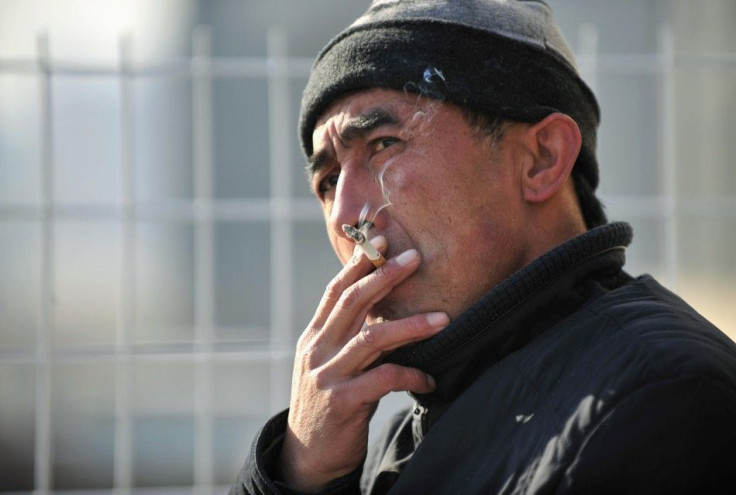China Considers Nationwide Public Smoking Ban Despite Dependence On Tobacco Industry

China’s top leaders are considering a nationwide public smoking ban, hoping to curb the country’s rampant tobacco consumption, which continues to cost the economy as well as public health.
According to the deputy director of the Chinese Center for Disease Control and Prevention’s Office of Tobacco Control, Yang Jie, China’s lawmakers are considering a nationwide smoking ban in all public places. The regulation would “optimistically” be rolled out during the next year. “If you look at the general development legislation, I don’t think there are a lot of problems,” Yang said in a press briefing. “What is most troubling is how to enforce the law effectively.”
In the past, efforts to control smoking in China have been largely unsuccessful. In fact this isn’t the first time a smoking ban would be introduced, for some cities. In Beijing, smoking inside public places like restaurants, bars and other establishments has been illegal since last May. However, the poorly enforced law left many bars and clubs in a smoky haze. Often, enforcing such smoking bans is in the hands of bar or restaurant owners, who in addition to posting no-smoking signs are responsible for telling patrons to snub out cigarettes if they light up. Because of this, many indoor smokers go unpunished, because business owners do not want to risk losing customers.
If passed, the law would affect China’s staggering number of smokers, which is estimated to be roughly 300 million or 25 percent of the population. Though smoking is deeply engrained in Chinese culture, legislators hope that a public ban will cut down China’s growing health care costs and force citizens to smoke less. China is currently plagued with myriad smoking-related diseases, like lung cancer and respiratory diseases, which cause more than a million deaths annually, according to the Tobacco Control Office. Experts believe that the number of deaths attributable to smoking could triple by 2030.
China’s tobacco ban, if enforced successfully, could have an effect on the country’s state-owned tobacco companies. According to a report by the Guardian, the industry plays a large part in the government’s revenue, with tobacco sales reportedly accounting for 7 to 10 percent of it. The perceived conflict of interest, with Premier Li Keqiang running the country’s public health programs, and his younger brother Li Keming running the state-owned tobacco conglomerates, may have been a problem for such bans in the past. However, in a study by China’s Central Party School, one of the co-authors, Zhang Zhongjun, said taking a harsher line against tobacco would be beneficial to China’s economy.
“He said there are a million jobs lost per year because a million people die from tobacco,” said Judith Mackay, a senior adviser to the World Lung Foundation. “That’s the first time in China that I’ve seen this economic understanding that the economic balance is definitely in favor of health."
© Copyright IBTimes 2024. All rights reserved.





















